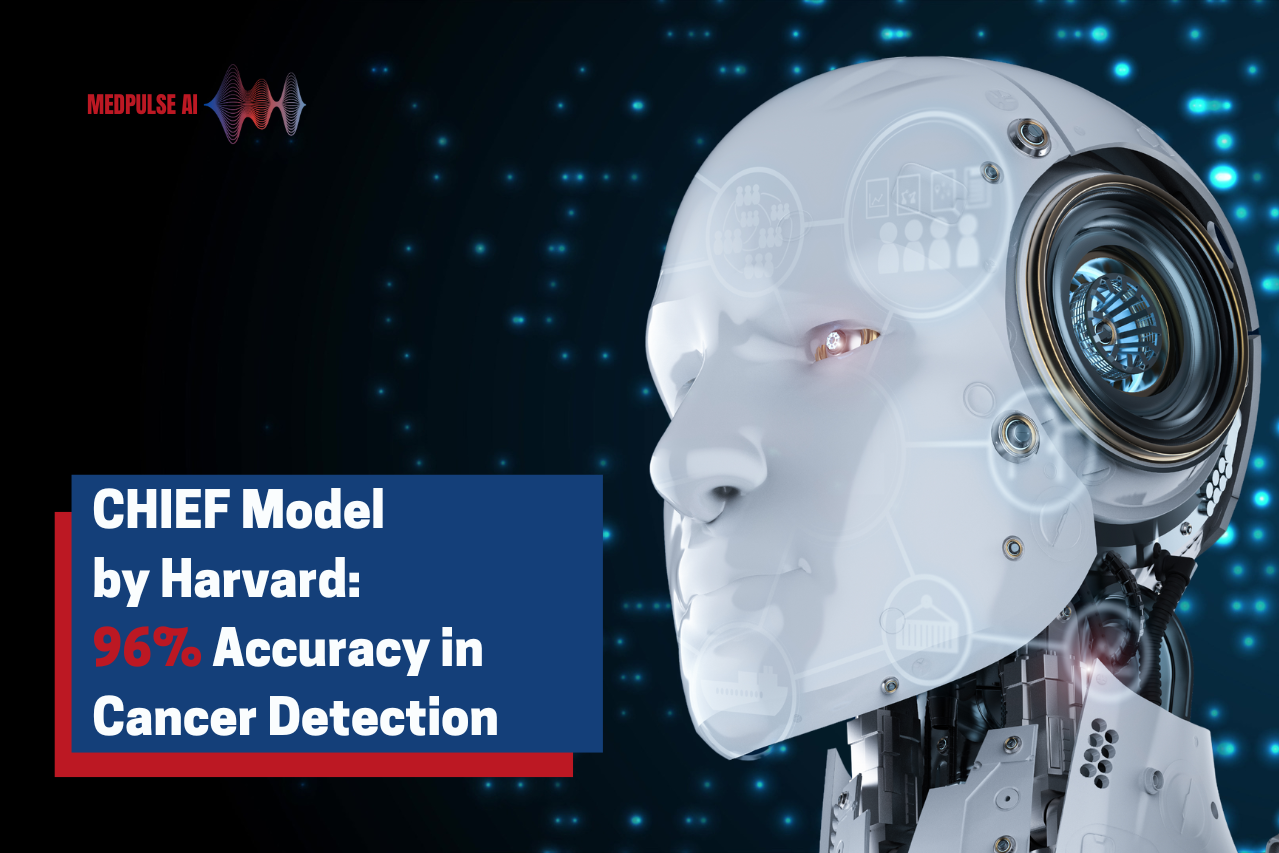Advanced care planning (ACP) is a critical but often neglected aspect of healthcare. It involves deciding the type of medical care a patient would want to receive if they cannot communicate their preferences. Despite its importance, studies indicate that only about one in three adults in the United States complete advance directives, leaving many end-of-life decisions to surrogates, often under emotionally challenging circumstances.
Artificial intelligence (AI) is emerging as a transformative tool in this space, offering ways to enhance ACP by predicting preferences, improving communication, and streamlining processes. However, alongside these opportunities lie significant ethical, technical, and cultural challenges.
The Importance of Advance Care Planning
Advance care planning involves documenting preferences for medical treatment in situations where an individual is unable to express their wishes. This includes decisions about life-sustaining measures such as resuscitation, ventilator use, and artificial feeding. ACP ensures that healthcare providers and family members honor the patient’s values, enhancing the quality of end-of-life care and reducing the likelihood of unwanted interventions.
Despite its importance, barriers to ACP include a lack of awareness, emotional discomfort surrounding end-of-life discussions, and the complexity of making hypothetical medical decisions. These barriers disproportionately affect marginalized populations, with significant disparities observed across racial, ethnic, and socioeconomic groups. These gaps in planning can lead to medical interventions that may not align with patients’ values or desired quality of life
Globally, the uptake of ACP varies. Countries like Australia, the Netherlands, and Singapore have implemented robust systems for advance directives, demonstrating higher participation rates. For instance, Singapore’s centralized electronic health records system stores advance directives, making them readily accessible to healthcare providers.
How AI Can Enhance Advance Care Planning
Artificial intelligence (AI) is increasingly being explored as a tool to address challenges in advance care planning (ACP). Various studies and initiatives have indicated that AI could contribute to this process by analyzing data, improving communication, and identifying patients who may benefit from ACP discussions. While these capabilities present opportunities, they also require careful consideration of ethical, technical, and practical implications.
Data Analysis and Predictive Capabilities
AI’s ability to process large datasets offers potential benefits in predicting patient preferences and planning for future care. Research cited in BMJ Supportive & Palliative Care highlights how AI can analyze electronic health records (EHRs), demographic data, and clinical histories to identify patterns in patient outcomes. These insights might allow AI systems to suggest likely treatment preferences, such as life-sustaining interventions, based on trends observed in similar patient populations.
For example, machine learning models have been used to forecast disease trajectories in chronic illnesses. Such predictions could help healthcare providers initiate ACP discussions at optimal times, potentially preventing crises that require urgent decisions. According to a review in Health Affairs, predictive analytics can also help clinicians anticipate symptom progression, enabling proactive rather than reactive care planning. However, the accuracy and reliability of these models depend heavily on the quality and diversity of the data used.
Facilitating Communication
AI-based tools, such as chatbots and virtual assistants, are being developed to help patients understand and navigate the complexities of ACP. These tools utilize natural language processing (NLP) to simplify medical jargon and provide clear explanations of options, making ACP discussions more accessible. An article in the Journal of Medical Internet Research highlights how chatbots have been employed to assist patients in completing advance directive forms by answering common questions and offering clarification in real-time.
In some cases, AI has been used to create visual simulations that depict medical interventions like mechanical ventilation or dialysis. These simulations allow patients to better understand the implications of their choices, potentially leading to more informed and confident decisions. While these tools show promise, their effectiveness depends on how well they are designed to address individual patient needs and concerns.
Proactive Identification of ACP Candidates
One of the more advanced uses of AI in ACP involves identifying patients who might benefit from advance care planning discussions. By analyzing data from EHRs, AI systems can flag individuals with indicators of declining health, such as frequent hospitalizations or specific chronic conditions. For instance, Stanford Medicine has reported success in using AI to identify hospitalized patients who could benefit from palliative care. These algorithms aim to ensure that ACP conversations occur early enough to align care with patient preferences, as detailed in a study published in The Lancet Digital Health.
However, concerns remain about the risk of false positives or negatives in these predictions. Misidentifying patients could lead to unnecessary distress or missed opportunities for timely care planning. As such, these tools are generally viewed as adjuncts to, rather than replacements for, clinical judgment.
Improving Documentation and Accessibility
AI technologies have also been employed to improve the documentation and accessibility of advance directives. Tools developed by companies like IBM Watson Health aim to integrate ACP records into EHR systems, making them readily available to healthcare providers during critical moments. A case study featured in Harvard Business Review highlighted how such integration can reduce the likelihood of directives being overlooked, particularly during emergency care.
Standardizing and automating documentation processes could also address inconsistencies in how ACP preferences are recorded and interpreted. However, ensuring that these records remain secure and accessible across different healthcare systems presents ongoing challenges, particularly in regions without centralized health information systems.
Considerations and Challenges
Despite its potential, AI in ACP raises important ethical and practical questions. The integration of AI into sensitive aspects of healthcare, such as end-of-life planning, requires robust safeguards to ensure that patient autonomy and privacy are maintained. Concerns about algorithmic bias, data security, and the transparency of AI decision-making processes are frequently cited in research, including a 2023 article in JAMA Internal Medicine. Addressing these concerns is critical to building trust among patients and healthcare providers.
Furthermore, while AI can assist in analyzing data and facilitating discussions, it cannot replace the empathy and cultural sensitivity provided by human caregivers. Critics argue that AI should remain a supportive tool rather than a central decision-maker in ACP, particularly given the deeply personal nature of end-of-life care.
Will Patients Feel Comfortable with AI in Advance Care Planning?
A central question surrounding the integration of artificial intelligence (AI) into advance care planning (ACP) is whether patients will feel at ease entrusting sensitive and deeply personal decisions to AI systems. This concern reflects broader anxieties about technology’s role in healthcare, particularly when it comes to matters as profound as end-of-life care.
Patient comfort with AI in ACP hinges on several factors, including trust in the technology, transparency in how AI systems make recommendations, and the assurance that AI serves as a supportive tool rather than a decision-maker. A 2023 Pew Research Center survey revealed that while 62% of Americans are open to using AI in healthcare, only 35% feel comfortable with AI assisting in end-of-life decisions. These findings suggest a need for healthcare providers and developers to address public skepticism and foster confidence in the technology.
Building trust in AI systems requires a commitment to transparency. Patients need to understand how AI tools arrive at their recommendations, including the data sources, algorithms, and predictive models involved. Clear, accessible explanations can demystify the technology and alleviate fears of bias or error. Additionally, ensuring that AI systems are trained on diverse and representative datasets can help reassure patients that the recommendations are equitable and inclusive.
Equally important is maintaining the human element in ACP. While AI can analyze data and present options, it cannot replicate the empathy, cultural sensitivity, and emotional support provided by human caregivers. Patients are more likely to accept AI’s role if it is framed as a collaborative tool that enhances, rather than replaces, human decision-making. Involving patients, families, and clinicians in designing and implementing AI systems can further ensure that the technology aligns with patients’ values and preferences, ultimately fostering a sense of comfort and trust.
“While AI offers numerous possibilities in supporting end-of-life care, it is crucial to ensure that technology complements rather than replaces the compassionate and personalized aspects of human caregiving.” Dr. Amara Nwosu, a palliative care specialist at Lancaster Medical School
Current Practices Without ACP or Next of Kin
In situations where no advance care plan (ACP) is available and no next of kin can make decisions, the responsibility traditionally falls to healthcare providers. This involves doctors and care teams making decisions based on their professional judgment and what they consider to be in the patient’s best interest. The introduction of artificial intelligence (AI) into healthcare raises questions about how such decisions might evolve when AI becomes part of the care process.
In most healthcare systems, these guidelines emphasize providing care that aligns with generally accepted medical standards and prioritizes the patient’s well-being. Physicians might also consult with ethics committees or legal advisors in complex cases. For example, in the absence of an ACP, interventions that preserve life, alleviate pain, or address immediate medical needs are generally prioritized.
AI’s Role in Such Scenarios
The incorporation of AI into healthcare does not replace the clinician’s role but instead aims to complement decision-making processes. In the context of ACP, AI could analyze a patient’s medical history, demographic data, and clinical trends to suggest possible preferences. However, these AI-driven insights are advisory and not definitive. Decisions in these cases are ultimately made by healthcare professionals, with AI serving as a tool to enhance their judgment.
For instance, an AI system might analyze data from similar patients to predict what treatments might align with the likely preferences of a patient with a comparable profile. However, predictions from AI are probabilistic, not personalized, and cannot account for the unique values or cultural considerations of an individual. As such, these tools are viewed as augmentative, providing additional data rather than making autonomous decisions.
Ethical Considerations in AI-Assisted Decision-Making
Patients and advocates often question whether AI could or should make autonomous decisions in the absence of human input. Ethical concerns include:
- Patient Autonomy: AI lacks the capacity to understand individual patient values or engage in nuanced discussions about their preferences.
- Bias in Predictions: AI relies on data that may not represent diverse populations, potentially leading to recommendations that do not align with the best interest of certain groups.
- Transparency: Patients and caregivers often express concern about understanding how AI-generated recommendations are made.
According to a 2023 study in The Lancet Digital Health, healthcare providers are unlikely to rely exclusively on AI in cases where no ACP or surrogate is available, as doing so could undermine trust in the healthcare system.
Patients’ Concerns and Ongoing Debates
For patients undecided about AI’s role in their care, these scenarios highlight the importance of clear guidelines for AI use in healthcare. Questions like “Will AI decide my care if no one else can?” underscore a need for transparency about how AI is implemented. The prevailing view among ethicists and healthcare professionals is that AI should not replace human decision-making in sensitive cases. Instead, it should assist clinicians by providing evidence-based insights to inform their choices.
Ultimately, the use of AI in such contexts should aim to support the human elements of care, ensuring that decisions reflect compassion, ethical principles, and medical expertise. These concerns underscore the importance of educating patients about how AI is used in healthcare and ensuring they remain active participants in their care planning.
What are your thoughts on using AI for such deeply personal healthcare decisions? Let us know in the comments.







